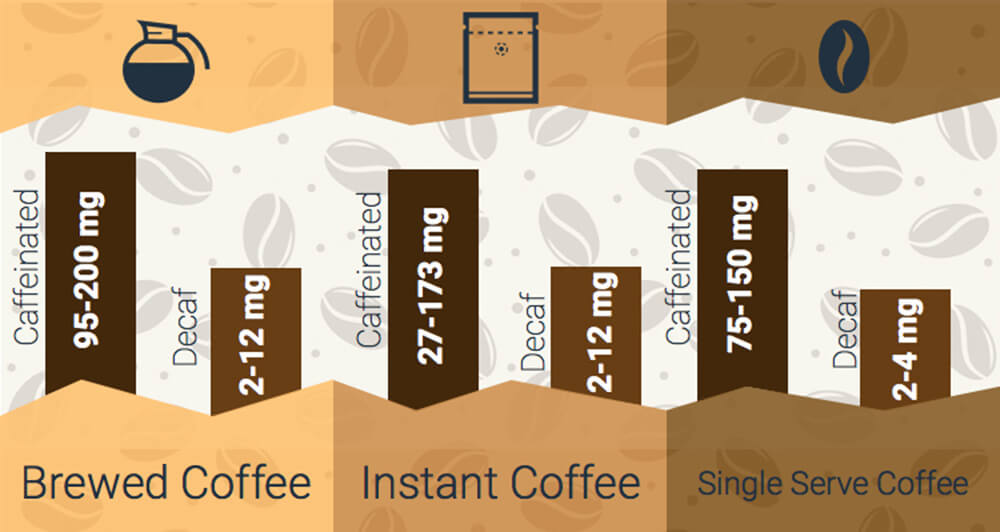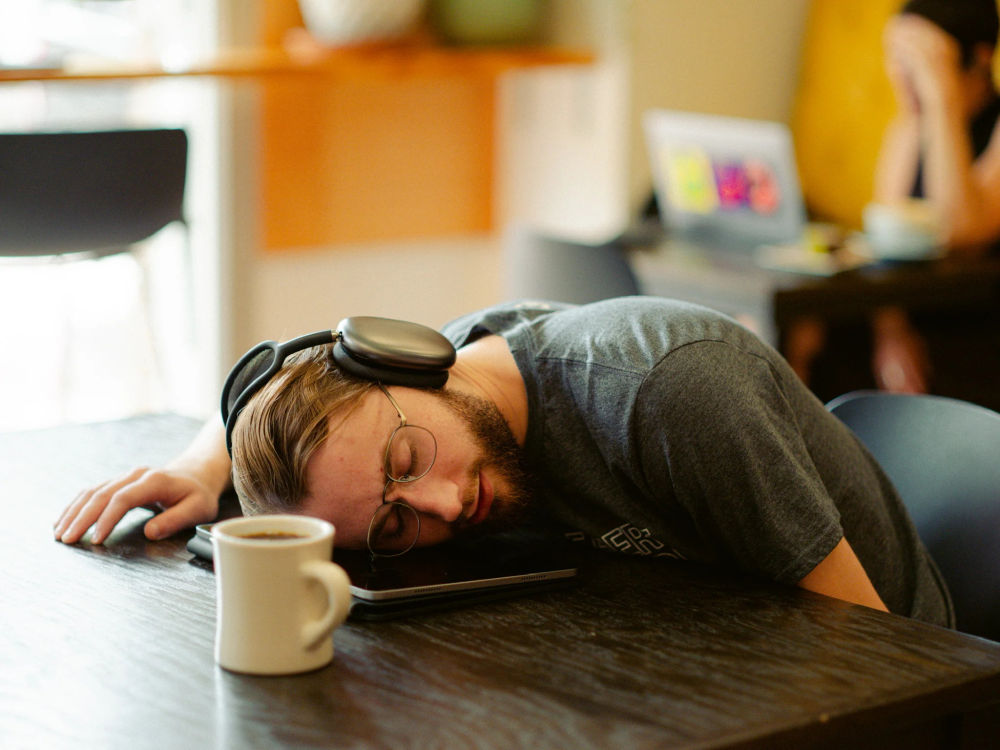The world of coffee is diverse and rich in people’s creativity. The awakening taste and alert energy from caffeine in coffee help people carry out work effectively and energetically. However, if you don’t want to consume too much caffeine, you can still have another option to enjoy coffee, which is decaf coffee.
Decaf coffee, short for decaffeinated coffee, is a popular alternative for coffee lovers who want to enjoy the taste of coffee without the stimulating effects of caffeine. However, is decaf coffee actually completely caffeine-free? Let’s explore with Nawon in the article below.

What is Decaf Coffee?
Decaf coffee is coffee that has had most of its caffeine content removed. This means that decaf coffee still contains a small amount of caffeine and is not completely caffeine-free as many people often mistakenly believe. Because it is produced from regular coffee beans, decaf coffee still has the same flavor as naturally roasted coffee but is a little less bitter.
Caffeine is a natural stimulant found in coffee beans, and some people choose to consume decaf coffee for a variety of reasons, such as reducing their overall caffeine intake.
Decaf coffee is often considered a good choice for people who are sensitive to caffeine or those who want to enjoy a cup of coffee at the end of the day without caffeine’s potential negative effects on sleep. It’s worth noting that while decaf coffee isn’t completely caffeine-free, it typically contains significantly less caffeine than regular coffee. The exact amount may vary depending on the decaffeination process and the type of coffee beans used.
See more: The history of coffee – Origin and how this drink was discovered
How much caffeine in decaf coffee
A regular cup of decaffeinated coffee has about 2 mg of caffeine, compared to a regular cup of regular coffee, which has about 95 mg of caffeine.
Although the amount of caffeine in decaf coffee can vary depending on the type of beans the manufacturer uses, typically the production method will separate 97% – 98% of the caffeine in the coffee beans.

How is decaf coffee made
Decaf coffee was first commercially available in 1906 in Germany. Created by Ludwig Roselius, who thought his father died of too much caffeine, he made it his mission to create a blend that had all of the taste without what he thought was ‘poison’. However, he found the answer to his problems by accident. During one of the coffee bean shipments a box got immersed in seawater and when brewed it was discovered that the water had removed most of the caffeine content from the beans. This revelation led to Roselius, patenting a way of steaming coffee to remove the caffeine and it’s still a process which is used today. ( Cre: Wikipedia )
There are many different methods used to decaffeinate coffee beans, and these methods typically involve using solvents or water to extract the caffeine. The most common methods include the Swiss Water Process, a solvent-based process using ethyl acetate or methylene chloride, and the carbon dioxide method.

Cre: compoundchem.com
Swiss water method
The most popular decaffeination method is the Swiss water method. This process involves soaking the beans in hot water to dissolve the caffeine and then using a special filter to remove the caffeine-laden water. Many coffee connoisseurs prefer the Swiss water method because it does not involve the use of chemicals and preserves the natural flavor of the coffee.
Ethyl Acetate Process (Naturally Derived)
Ethyl acetate can be derived from fruits, and in this process, it is used to decaffeinate coffee. The beans are steamed to open their pores, and then ethyl acetate is applied to extract caffeine. The beans are washed to remove the ethyl acetate, and the process is repeated until the desired level of decaffeination is achieved.
Carbon Dioxide (CO2) Method
In this method, carbon dioxide is used in a highly pressurized state to extract caffeine from coffee beans. The coffee beans are first softened by steaming, and then the pressurized CO2 is circulated through the beans. The CO2 binds with the caffeine molecules, and the caffeine-laden CO2 is separated from the beans. The CO2 is depressurized, and the caffeine is removed, leaving decaffeinated coffee beans.
While these methods are effective at removing caffeine, some people are concerned about exposure to residual chemicals. Carbon dioxide extraction is another method that uses carbon dioxide to dissolve the caffeine, resulting in a decaf coffee that is free from chemical residues.
Is decaf coffee bad for you
The upsides of decaf coffee
Decaf coffee may not contain as much caffeine as regular coffee, but it still offers plenty of health benefits. Here are some of the ways decaf coffee can positively impact your well-being:
Rich in antioxidants
Decaffeinated coffee is an excellent source of antioxidants, which can help prevent and repair damage to cells caused by free radicals.
Reducing anxiety
Caffeine can worsen symptoms of fear, but decaffeinated coffee can have the opposite effect. Studies have shown that decaf coffee can reduce feelings of anxiety and improve mood.
Lowering risk of disease
Decaf coffee has been linked to a decreased risk of diseases such as type 2 diabetes, liver disease, and some types of cancer.
Boosting brain function
The antioxidants in decaf coffee can help improve brain function, including memory and cognitive performance.
Sleep Quality
Caffeine is known to interfere with the body’s natural sleep process, making it more difficult to fall asleep and reducing sleep quality. If you drink regular coffee in the morning and have insomnia or restless sleep, you can try decaf coffee. The low amount of caffeine in decaf coffee will be much safer for your sleep and you can still enjoy the aroma. taste of coffee. If you are sensitive to caffeine, it is best to avoid drinking any coffee or anything containing caffeine such as tea or energy drinks within 4 to 6 hours before going to bed.

The downside of decaf coffee
Exposure to many toxic substances
Removing the natural caffeine found in coffee beans requires the use of chemicals that are harmful to health. One of them is methylene chloride, a powerful chemical found in paint strippers. Once in the body, methylene chloride can damage the heart and liver, and even affect your reproductive health.
May increase cholesterol
Many studies have shown that drinking decaffeinated coffee can significantly increase unhealthy cholesterol levels. This is because most decaf coffee is made from Robusta beans, which are high in fat, leading to increased cholesterol. However, if you still want to drink decaf coffee instead of regular coffee, look for the effective uses of Arabica beans.
It can cause arthritis
In addition to the potential health risks above, switching to decaffeinated coffee could also be harmful to your bones. Research has shown that study participants who regularly drank four or more cups of decaffeinated coffee per day had a lower risk of arthritis than those who never drank decaffeinated coffee.
You think buying coffee has become safe
Drinking decaffeinated coffee makes you think it’s completely safe no matter how much or how little you drink. Meanwhile, medical experts advise pregnant women to only drink one cup of coffee a day. If you drink more than 1 cup a day, even if it is decaffeinated coffee, it can still be harmful to your health and that of your unborn baby.
Decaf Coffee vs Regular Coffee: Which is Better?
Decaf coffee is made from coffee beans that have gone through a decaffeination process, resulting in a lower caffeine content. Apart from the caffeine difference, which other aspects distinguish regular coffee from decaffeinated coffee? Let’s see the table below:
| Criteria | Regular Coffee | Decaf Coffee |
| Taste | Full-bodied, rich, and strong flavor profile, varying according to roast level and bean origin. | Lighter flavor profile, due to the decaffeination process altering the bean’s natural taste. |
| Caffeine Intake | Higher caffeine content compared to decaf coffee, generally ranging from 70-140 mg per cup. | Lower caffeine content compared to regular coffee, usually ranging from 2-5 mg per cup. |
| Health Effects | May enhance athletic performance, improve cognitive function and mood, and reduce the risk of certain diseases. | May offer similar health benefits as regular coffee, but with the added advantage of lowering caffeine intake, therefore avoiding potential negative effects like restlessness or anxiety. |
So, which is better? It depends on what factors are most important to you. If you need a strong caffeine boost in the morning, regular coffee may be your go-to beverage. If you’re sensitive to caffeine or prefer a lighter coffee taste, decaf coffee may be your preferred choice. Ultimately, the decision boils down to personal preference and the desired outcome.
There are also many factors to consider when comparing regular and decaf coffee. Taste, caffeine intake, health effects, and more come into play when selecting the right coffee for you. By discovering the differences between these two types of coffee, you can choose which one is best suited to your lifestyle and needs.
Conclusion
Decaf coffee may not have the same caffeine kick as regular coffee, but it offers a unique and flavorful experience. Understanding the decaffeination process and the potential health benefits associated with drinking decaf coffee can help you make an informed decision about your coffee choices.
In addition, brewing decaf coffee using the right techniques and exploring different varieties can enhance the taste and aroma of your cup. And if you’re someone who loves coffee but struggles with sleep quality, decaf coffee may be the way to go.
At the end of the day, whether you choose regular or decaf coffee comes down to personal preference. With the insights and information provided in this article, we hope you are better equipped to make the right choice for your taste buds and lifestyle. So go ahead and enjoy a cup of decaf coffee – it might surprise you!
FAQ about Decaf Coffee
Can decaf coffee make you poop?
Yes, decaf coffee, like regular coffee, can have a laxative effect on some people and may contribute to bowel movements. This effect is often attributed to compounds in coffee, both regular and decaffeinated, such as chlorogenic acids and other components that stimulate the production of stomach acid and the release of certain hormones that can have a laxative effect.
Is decaf coffee acidic?
Yes, decaf coffee can be acidic, and its acidity can vary depending on factors such as the type of coffee bean, the roasting process, and the brewing method. The acidity in coffee is a result of compounds such as chlorogenic acids.
Is decaf coffee safe during pregnancy?
Decaf coffee is generally considered safe during pregnancy, and many healthcare professionals agree that moderate caffeine intake is acceptable during pregnancy. However, it’s important to be mindful of your overall caffeine consumption, including decaffeinated beverages, as part of a healthy pregnancy.
Can decaf coffee lower blood pressure?
Decaf coffee, with its lower caffeine content, may have a milder impact on blood pressure compared to regular coffee. Some studies suggest potential neutral or beneficial effects on blood pressure, likely due to other compounds in coffee. Individual responses vary, and it’s advisable to consult with a healthcare professional for personalized advice on blood pressure management.
Can decaf coffee dehydrate you?
Decaf coffee, like regular coffee, has a mild diuretic effect, but it is not likely to cause dehydration when consumed in moderation. It contributes to overall fluid intake, offsetting its diuretic properties. Individual responses may vary, so pay attention to your body’s signals and stay adequately hydrated.

